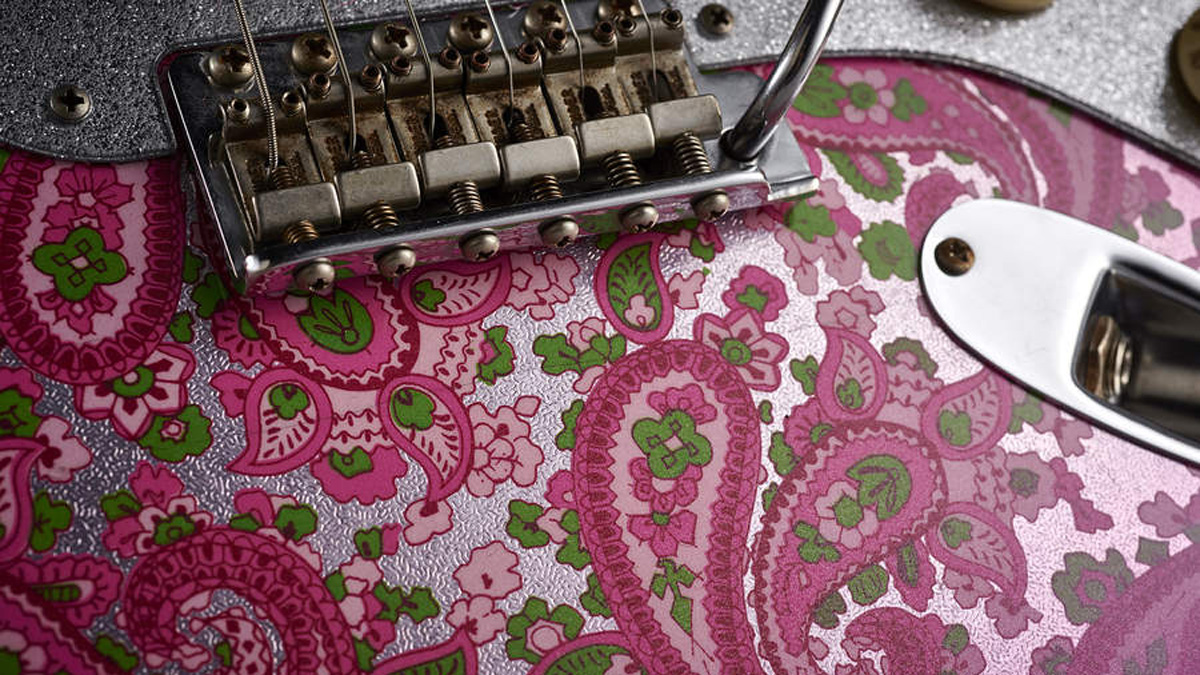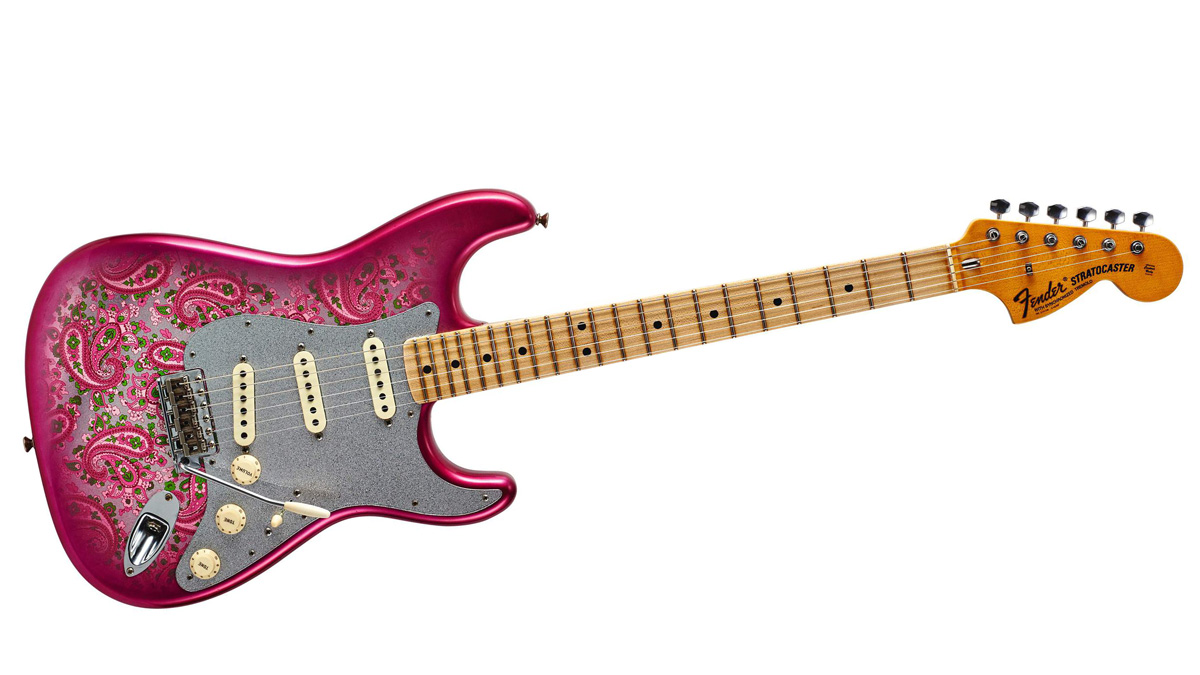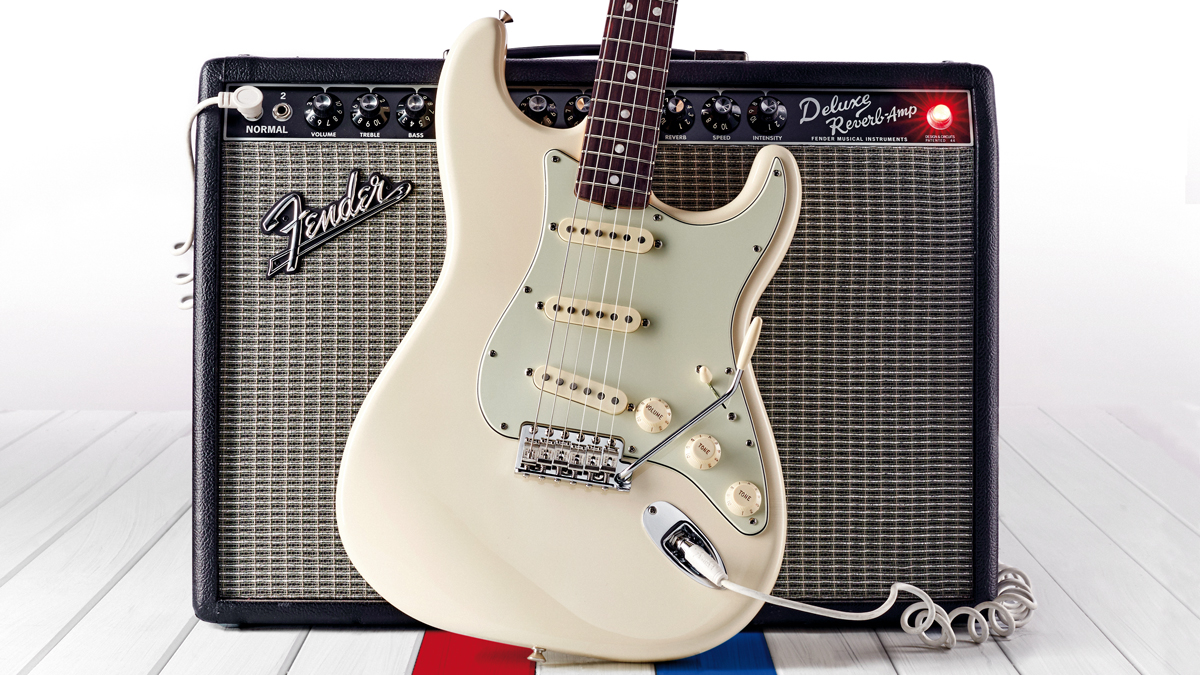MusicRadar Verdict
At £4k this is no impulse buy, but the money buys you superb quality.
Pros
- +
Build, good weight, contemporary neck profile and hugely classic sounds.
Cons
- -
The finish might put many off what is a stellar Stratocaster.
MusicRadar's got your back
If you’re serious about your guitars, you’ll have played a Custom Shop Fender over the years and it’ll probably have been one that strongly references the past.
“It continues to be the heritage of Strats and Teles that drives the business,” says Simon Jacobs, Fender EMEA’s Custom Shop sales manager. “And, of those, the majority are probably 60s Strats - it’s what everyone wants.”
He’s got a point. There are plenty of new features and designs, but there’s something about an old Fender that continues to inspire us, especially when you can personalise the build to the extent currently offered by the Custom Shop.
To that end, Simon and his team commissioned seven of the Custom Shop’s Master Builders to conceive their own specific designs as the centre-piece of a European dealer roadshow that kicked off in early October 2018: “Rather than just having a lot of different-spec guitars on show, we kept it more focused and asked each of the Master Builders: ‘If you were going to grab a guitar to go to a gig on a Friday night, what would it be?’
“The thinking behind this was to make something that was interesting with a few curves, but wasn’t so far out there it wouldn’t be a genuine player’s guitar,” he continues. “It was meant to be something you’d happily grab and go off to your gig with: your preferred workhorse. It was a very loose brief, and the responses from the Master Builders has been quite varied.”
The resulting guitar falls into the Master Design category: “The Master Builder comes up with the build and aesthetic of the instrument,” continues Simon, “and that’s put out to what we now refer to as Custom- Built [previously Team-Built], essentially to hit a price point: a more affordable piece but with all the details and appointments a Master Builder would choose.”
Sounds
Greg Fessler clearly likes his guitars to be noticed! The polar opposite to the ubiquitous Sunburst, this Pink Paisley Closet Classic will certainly achieve that, not least with its silver sparkle scratchplate. “Paisley is very popular right now,” offers Greg, “and I thought it would appeal to a lot of people. Plus, I enjoy the retro look.”
Want all the hottest music and gear news, reviews, deals, features and more, direct to your inbox? Sign up here.
As per the base spec, of course, we have the period’s larger headstock and Schaller F logo tuners along with a gloss polyurethane finished neck (not nitro) that goes over the sides of the frets. As some of you might remember, as the 70s progressed, Fender sprayed an over-thick finish on its maple fingerboards, but this isn’t like that at all. There’s no ageing, either, although the headstock face is given a warmer tint. Grain-wise, it’s virtually bang on quarter-sawn, despite its rift-sawn spec.
The quoted ’69 U neck profile here actually feels the most contemporary of the trio, the slimmer depth and additional shoulders suiting thumb behind. There are several spec details that make this model stand out, for instance the narrow spacing of the 12th fret black Micarta dots (which are 7mm diameter). And to match that big headstock, we have a bullet-style truss rod adjuster behind the nut.

The wiring gives us separate tone controls for the neck and bridge pickup, but not the middle, and we get a disparate trio: Texas Special (bridge), Fat 50s (middle, RWRP), ’69 Strat (neck) - all hand-wound with the middle pickup reverse-wound with reverse polarity (RWRP), so we have humbucking mix positions on the five-way lever.
Feel and sounds
Somewhere, someone has probably developed an algorithm that you could put in all the details of your Strat and Tele and it’d tell you what it’s going to sound like. In the meantime, ‘different’ is a good starting point. We are continuously amazed how no two Strats seem to sound the same, even if their specification is similar. Quite often it’s as much about the character.
Once you get over the dress, the ’69 Strat comes across with the sort of sounds you’d put into space to tell another civilisation what Earth’s most popular electric guitar sounds like. There’s that metallic splash to the front of the note that adds a halo of sparkle to everything we hear, and in a clean environment - well, it more than does it for this writer. This’69 has funk- tastic snap, bounce and life. The tone setup allows you to tame that sparkle a little on more gained classic rock settings, but never pulls back its Stratiness. The neck isn’t remotely sticky and its shape tends towards the everyman. It might look bonkers, but it sounds sublime.
At £4k this is no impulse buy and that money would bag you an exceptional guitar from many, many makers. Could you do that Friday night gig with a lesser Fender? Of course, but that’s not the point. If you can afford it, we’d wager there are few players who wouldn’t choose a guitar at this level and with the right name on the headstock. The only problem is the colossal choice. Download the 2018 Custom Guitar Design Guide and get started!
Dave Burrluck is one of the world’s most experienced guitar journalists, who started writing back in the '80s for International Musician and Recording World, co-founded The Guitar Magazine and has been the Gear Reviews Editor of Guitarist magazine for the past two decades. Along the way, Dave has been the sole author of The PRS Guitar Book and The Player's Guide to Guitar Maintenance as well as contributing to numerous other books on the electric guitar. Dave is an active gigging and recording musician and still finds time to make, repair and mod guitars, not least for Guitarist’s The Mod Squad.


